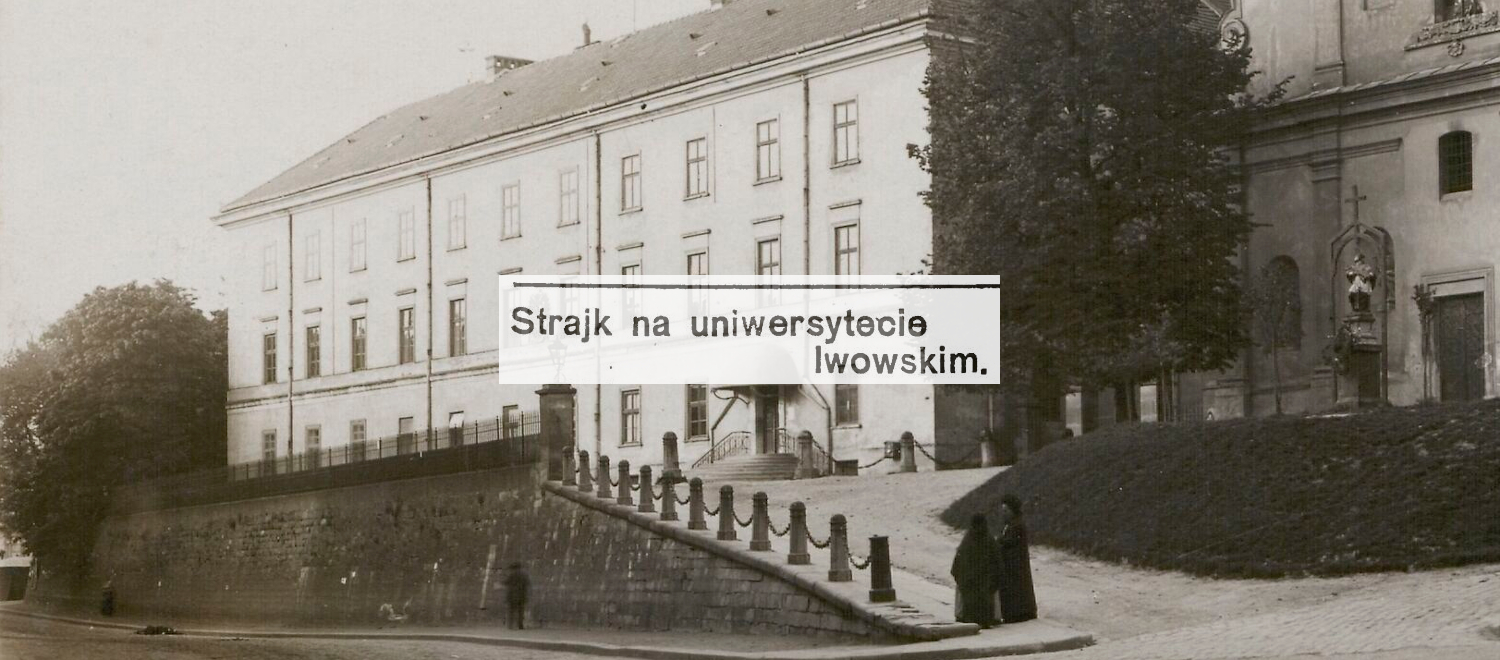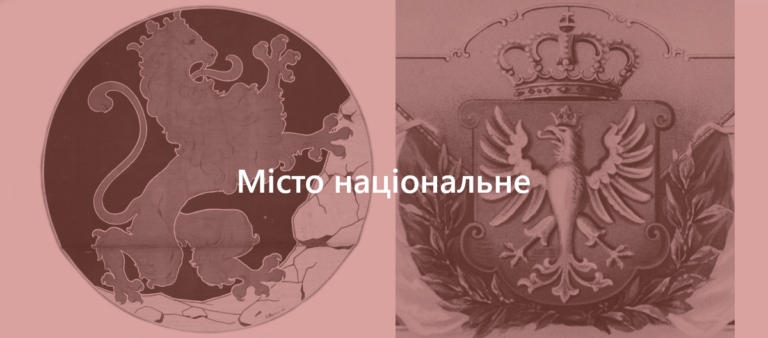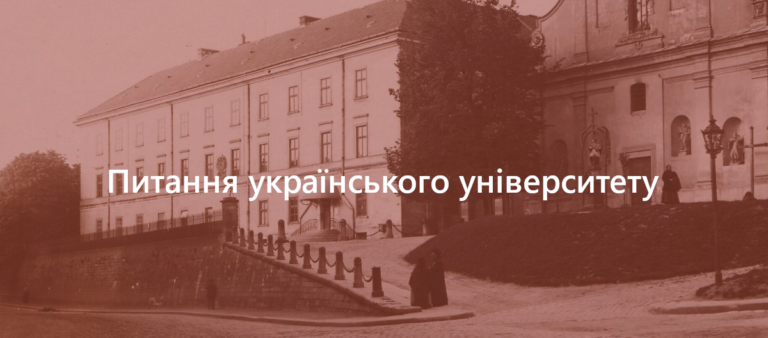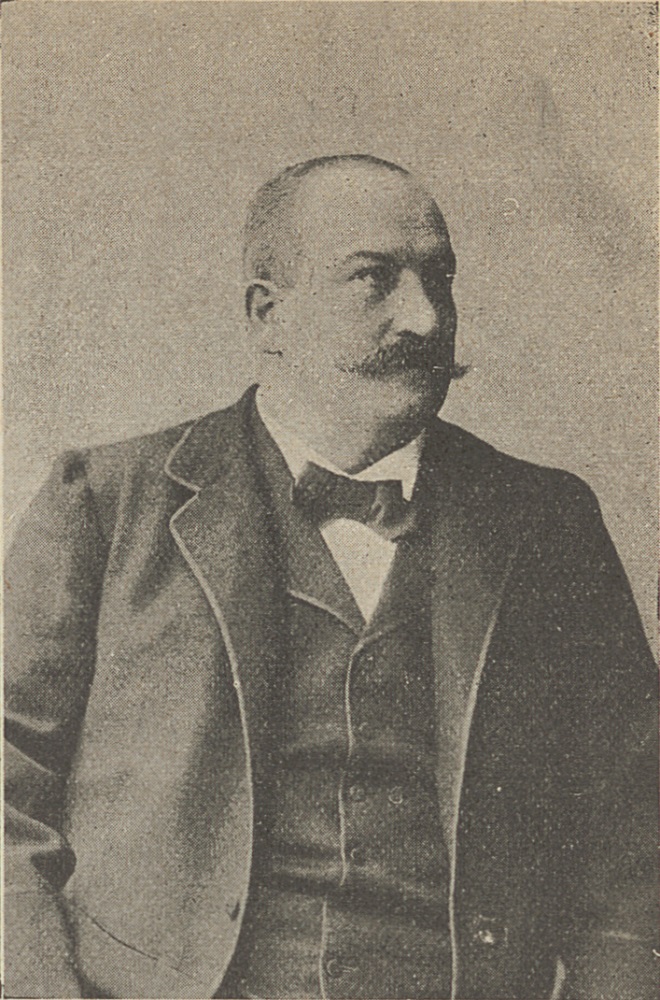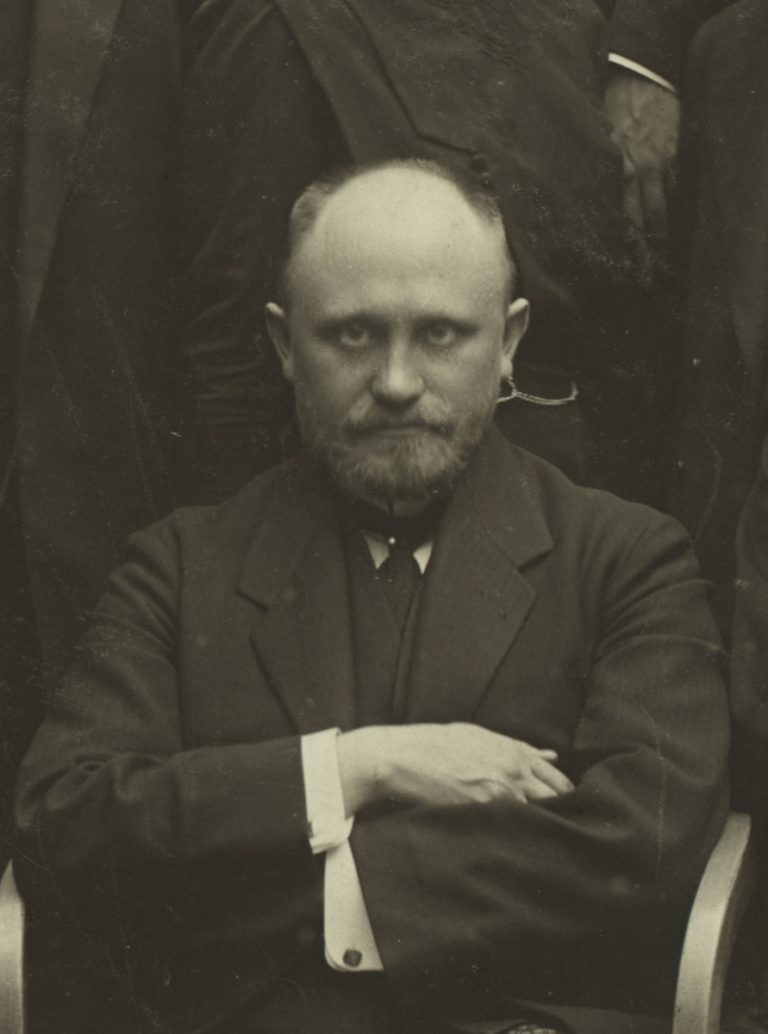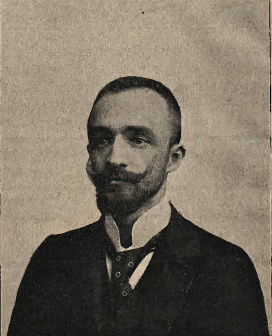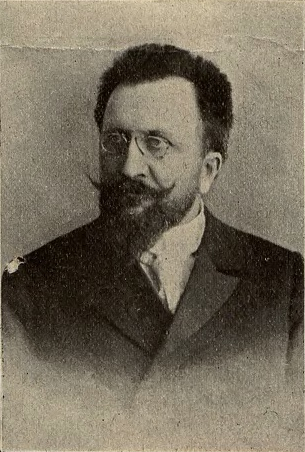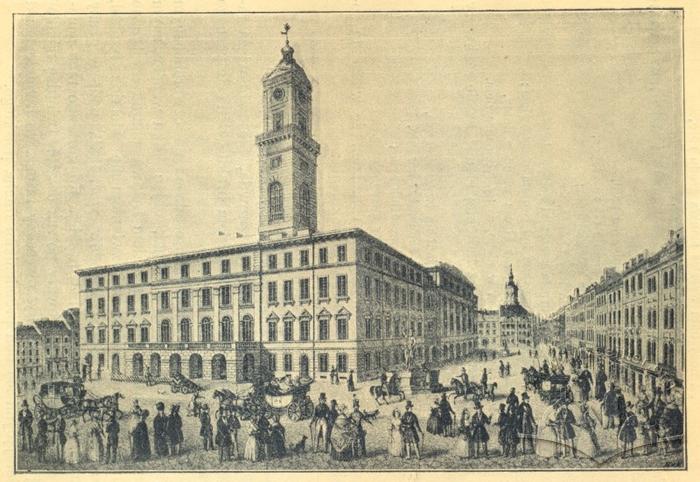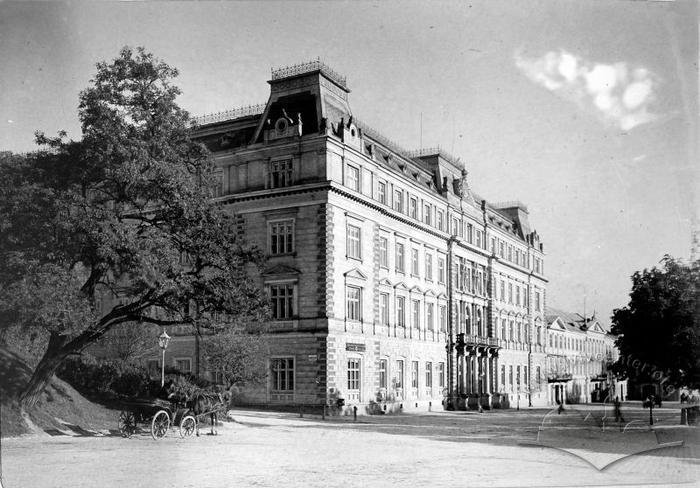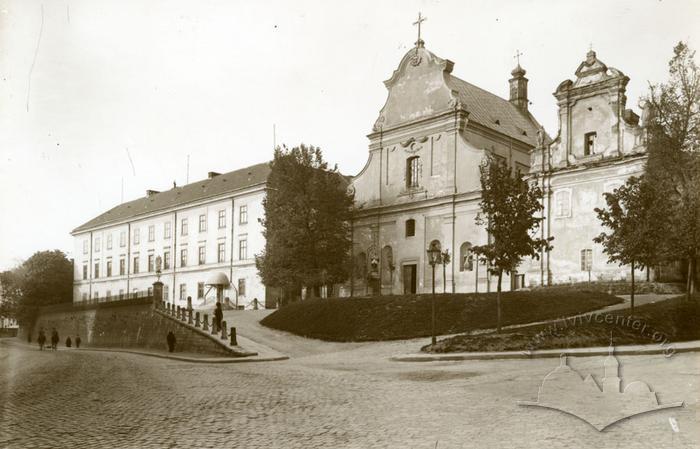The issue of the University of Lviv was part of a broader confrontation over the status of the Ukrainian language and thus an element of national competition between Poles and Ukrainians. Students, as the most "progressive" and active part of society, were at the forefront of this struggle. After all, the language used at university was not only about teaching, but also about the urban environment, a subject of a fierce confrontation itself.
The Ukrainian students took part in it as direct and most active "fighters" for the Ukrainization of the University and later as the most mobilized "support group" for the establishment of a separate Ukrainian university in Lviv. The Polish students, respectively, were their most active opponents. Therefore, while the members of parliament were trying to solve the issue in Vienna, the most visible processes in Lviv were student actions.
Since the 1880s, the problem of using the Ukrainian language had been an important factor in student life. For example, in 1886, the Ukrainians refused to participate in the general student assembly at the University because the announcement was printed in only one language, Polish. Accordingly, there was no compromise "through humiliation."
The assembly was supposed to be a response to the policy of the Galician governor's office. In 1886 the governor issued a decree obliging student societies to inform the police of all planned events. Though for a short time, this strengthened the sense of solidarity among students, despite national and political differences. For instance, in 1889, a meeting of students of all educational institutions and all nationalities (Poles, Jews, and Ruthenians) was held in the city hall. After the meeting, the students even tried to organize a demonstration in front of the governor's office, but were pushed back by the police as they approached the building. After 1889, in addition to the national division, students were finally divided into political groups: some adhered to socialist ideas (and were therefore disdainfully called "cosmopolitans"), while others took a nationalist stance.
As of 1909, before the bloody violent confrontation within the University walls, student movements had assumed various forms. Their main goals were either to demonstrate that Lviv University was "Polish" or to prove that it "had to be Ukrainian."
Student strike
Ukrainian politicians were increasingly and persistently calling for the establishment of a Ukrainian university in Lviv, for which, obviously, funds were needed. Then Polish activists decided to raise the question of government subsidies for education. They claimed that the existing university was in such a deplorable condition that it was urgent to build a new academic building, to create another botanical garden (for which land should be purchased), to procure equipment, to establish new departments, and so on. In other words, it was about new construction and expansion for Lviv University. In this situation, logically, the Ukrainian aspirations and the opening of another institution were receded into the background.
In order to "draw the government's attention to the critical condition of the University", Polish students held a "general academic assembly" on 24 May 1909, when they announced a three-day strike. The students' initiative was supported by the Polish press. The newspapers vividly described "ruins in the city's center that would discredit any city in Europe" and classrooms with "ovens and lamps, unsuitable for studying." It was specifically emphasized that other nations, such as the Germans or Czechs, would not have tolerated such a disgrace. Therefore, the Ukrainian demands became another factor to put pressure on Polish representatives in the authorities and to demand government subsidies for the construction of a new university building.
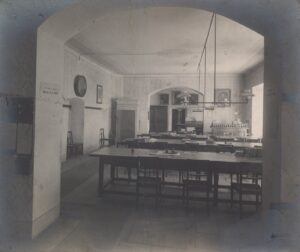
The University Library in the old building on ul. St. Nicholas (now vul. Hrushevskoho) shortly before moving to a new separate building
On the day the strike began, 25 May 1909, groups of patriotic youth gathered near the University at 7 a.m. They were "persuading" those students who were going to classrooms to join the strike. At 10 a.m., representatives of the strikers handed over their demands to the rector, and classes officially stopped. This day for the start of the strike was not chosen accidentally: the University was hosting meetings of representatives of the government, the governor's office and the rectorate who were discussing the possibility of reconstructing the existing building on ul. St. Nicholas. During these meetings, no classes were held, and the same groups of Polish youth were on duty outside the University, making sure that no one appeared in the classrooms.
The Ukrainian students, who did not participate in the "general academic meeting," organized a meeting of their own on the evening of 25 May. They condemned the "Polish forced strike." Moreover, they considered the main problem to be not the premises of the University, but the unhealthy interethnic relations within it. In general, the Ukrainian students' demands remained unchanged: the opening of Ukrainian departments, and later the establishment of a separate university. It was clear that they did not support the opening of new Polish departments.
After the meeting, the Ukrainians appealed to the rector, Antoni Mars, with a complaint about those Polish students who were forcing those who wanted to study to go on strike. The rector, of course, promised to look into the matter and resume classes as soon as possible. It is difficult to say how widespread the desire to strike was, how this desire was distributed among national groups (Poles, Jews and Ukrainians) and how many students really wanted to study, because members of Polish youth organizations were on duty outside the academic building from the very morning and "chased away" those who wanted to get inside.
After the strike ended, the Polish patriotic community focused on the reburial of Juliusz Słowacki on the Wawel Hill in Krakow. Cardinal Jan Puzyna had just spoken out against this reburial, and student societies in Lviv considered it their duty to protest against this act.
Assemblies, meetings, congresses
On 14 June 1909, an assembly of Polish youth took place at which the conflict between nationalists and socialists became evident once again. The nationalists were openly accused of instrumentalizing the problem of the University to achieve their political goals. After the assembly, socialist students marched from the University to the Adam Mickiewicz monument, where they held a separate rally calling for increased government subsidies and improved financial conditions of the institution.
Also in 1909, the Committee of Ukrainian Youth of Higher Schools in Austria and Russia organized a congress of Ukrainian progressive youth. The congress was opened on 11 July 1909 in the premises of the Yad Haruzim Jewish Association, and a student party was held there on the same evening.
Representatives of student youth from Vienna, Graz, Prague, Krakow, St. Petersburg, Odesa, Tomsk, Kyiv, Moscow, and Kharkiv arrived to take part in the congress. Members of parliament — professor Oleksandr Kolessa, professor Stanislav Dnistrianskyi and Kyrylo Triliovskyi — participated. There were representatives of the main Ukrainian political currents, except for Russophiles (this is the likely reason why the congress was not held in the People's House): populists, radicals and social democrats. The meetings lasted from 12 to 14 July, when the participants discussed the organization of Ukrainian youth, the Ukrainian University in Lviv, the social activity of Ukrainian students, the language issue, and so on.
On 13 July, a constituent assembly of the Society of Female Students was held at the University. Polish nationalists, under the influence of the patriotic organization Czytelnia Akademicka, tried to play "big politics" here as well, accusing the organizers of "insufficient patriotism." In particular, they agitated for fighting the "bacillus of cosmopolitanism" and defending "Polishness"; in the end, they tried to disrupt the meeting altogether. At the same time, the Society of Female Students was positioned as Polish, the language of the organization being Polish. Ultimately, the accusations of "cosmopolitanism" were dismissed, and the society was founded.
* * *
Students of Lviv University in the early 20th century, in particular in 1909, took part in the Ukrainian-Polish confrontation. In general, it was about the status of the Ukrainian and Polish languages as part of the "national development of peoples," when the status of the language, its prestige and the sphere of use meant the appropriate attitude towards its speakers. Actually, the struggle for the "Polishness of the University", as well as the demands to establish a "Ukrainian university", were part of this conflict.
In this conflict, it was necessary to demonstrate the importance of one's demands (for example, it was for this purpose that the student strike was announced), as well as to be active. This was the reason behind meetings, congresses, conferences, and assemblies that were often held in 1909.
